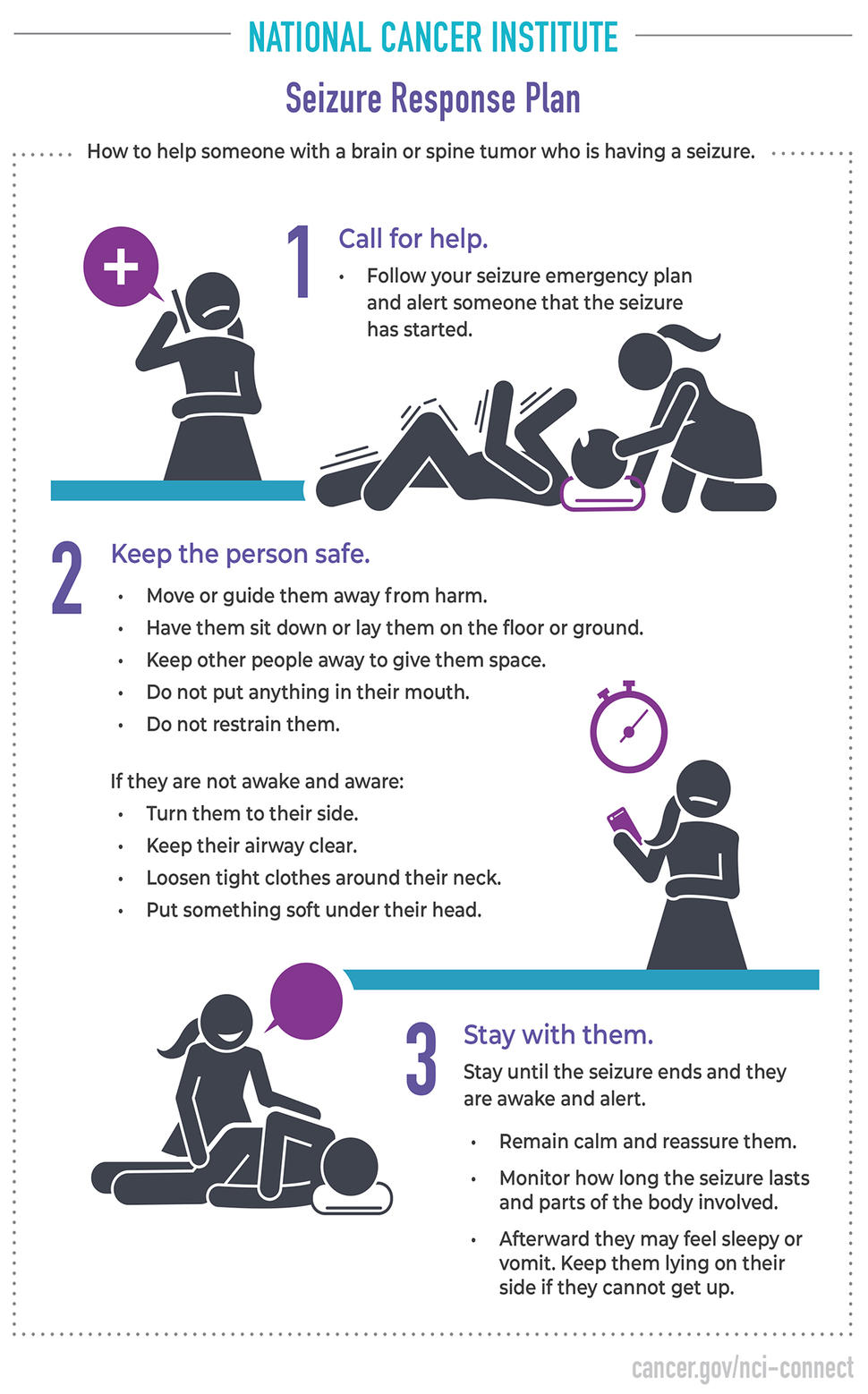What Is a Seizure?
Seizures are sudden, uncontrolled body movements and changes in behavior that are caused by abnormal brain activity. There are different kinds of seizures. Some are focal (a person remains awake), while others are generalized (a person loses consciousness). Seizures can be caused by a brain or spine tumor or cancer treatment.
Seizures may include the following symptoms:
- Odd feelings, such as unusual smells, tastes, or feelings
- Unusual experiences, including out-of-body sensations
- Feeling confused or memory loss
- Jerking movements or tingling in arms, legs, or one side of the body
- Periods of losing consciousness, sometimes with jerking movements and/or incontinence
Ways to Manage Seizures
Track your symptoms:
- Record if you have a seizure and what you are doing to manage your seizures using the My STORITM app or a journal. When tracking, include:
- What were you doing before the seizure occurred?
- What (if any) symptoms you did you have prior to the seizure?
- What part of the body was involved and how long did the seizure last?
- What type of seizure did you have (focal or generalized)?
- What happened after the seizure stopped?
Make an emergency plan:
- Develop a seizure emergency plan with your doctors and caregivers so you know what to do and whom to call. The plan may include:
- Getting to a safe place on the ground and alerting someone that the seizure has started.
- Asking your health care provider when you should alert a designated emergency contact or dial 911.
- Monitoring how long the seizure lasts and which parts of the body are involved.
- Monitoring whether you feel sleepy or like you will vomit after the seizure, so you or someone with you can place you on your left side to help.
Determine triggers:
- Recognize and avoid triggers, which are things that may lead to seizures or make them more severe or frequent. Triggers may include:
- Missing or taking your anti-seizure medication late
- Stress
- Lack of sleep
- Other illnesses or infections
- Overheating or overexertion
- Alcohol intake
- Flashing lights
- For women, their menstrual cycle
Practice self-care:
- Explore self-care activities that can help you manage your seizures, including diet, exercise, sleep, and medication:
- Avoid alcohol, as this can cause you to have seizures.
- Monitor whether you have changes in your strength or balance after a seizure. Talk to your doctor about an exercise plan and ask about recommendations and limitations (for example, you should not swim alone). Start slow and don’t push yourself too hard.
- Review if you should take seizure medication with or without food—this may impact the medication’s ability to work.
- Ask your health care provider what medication to take for seizure prevention and what other pain medication you should take after a seizure occurs. If your medications do not work as expected, they may need to be adjusted.
- Inform your health care team if you miss a dose and avoid suddenly stopping any medication. Missing and altering medications are common causes of seizures.
- Ask your health care team if your seizures will impact your ability to drive.
When to Report Seizures
Discuss any concerns with your doctor. Share the symptoms you’ve logged and your self-care activities.
- Ask your doctor when and how to report your symptoms.
- Report if your seizures get worse, are severe (e.g., increased frequency or no longer controlled by medication), or do not improve with your self-care activities.
- Ask your doctor what you should do in case of an emergency and when your seizures should be reported immediately. Symptoms may include a seizure that lasts longer than five minutes or multiple seizures that occur close together.


